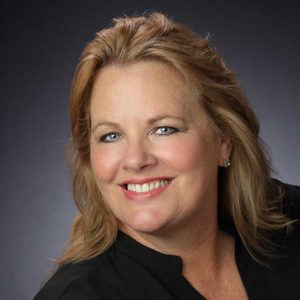You may already be familiar with a traditional reverse mortgage, but did you know that a reverse mortgage can also be used to buy a home? It’s called a Home Equity Conversion Mortgage (HECM) for purchase, and is sometimes referred to as a reverse mortgage purchase loan.
What is a reverse mortgage purchase?
An HECM for purchase allows folks age 62 and older to buy a new primary residence without required monthly mortgage payments (Although a reverse mortgage does not require monthly payments, a borrower can choose to make payments of any amount).
Qualified homeowners use proceeds from an HECM, plus an acceptable down payment, to buy their next primary residence. This is completed in a single transaction with one initial investment (down payment). And, even though the borrower does have to use the HECM toward purchase of their primary home, they can own other investment properties.
The HECM for purchase program was also designed to enable senior homeowners to relocate to other geographical areas to be closer to family members, or downsize to homes that meet their physical needs (handrails, single-story properties, ramps, wider doorways, etc).
We can help
Reverse mortgages are complicated. Even for many seasoned lenders, they can be tough to navigate. To make matters worse, there’s a lot of misinformation and just plain bad advice out there. If you’d like to speak with some smart folks who can clear away the jargon and explain these loans in simple terms, you’ve come to the right place.
Down payments
A reverse mortgage purchase is really not any more (or less) complicated than other home loan options. The down payment can come from any acceptable source including sale proceeds from a previous home or savings accounts.
The amount of the down payment required depends on the borrower’s age and the loan interest rate, but it typically varies between 25% (a 95-year-old) and 53% (a 62-year-old) of the purchase price.
Property
Eligible property types include existing one-to-four unit properties where construction has been completed and the property is habitable. The property must meet all FHA requirements including repairs to correct deficiencies that threaten health and safety or jeopardize the soundness and security of the property. Also, an appraisal is required for all HECM for purchase transactions.
Examples of major property deficiencies may include:
- No running water
- Leaking roof
- No primary heating source
- Inadequate electrical system
- Inoperable doors and windows
- State or local code violations
Get pre-qualified
If you’re seriously considering any type of HECM reverse mortgage, it’s critical that you get pre-qualified before making an offer on any property. A reverse mortgage loan borrower may not complete a loan application until they have had counseling from a certified HECM lender. Also, it’s common for elderly borrowers to have their families involved in this process, so you should consult an expert as early as possible.
Loan processing
Should the borrower decide to cancel the HECM for purchase transaction, they can do so any time prior to the closing date, provided that they notify all parties in writing of their intent. According to the U.S. Department of Housing and Urban Development (HUD), if any earnest money has been provided, the borrower should review the sales contract to determine if the earnest money is refundable.
Loan funding
The amount of money the borrower can receive is based on the age of the youngest borrower on title or eligible non-borrowing spouse, current interest rates, and the lesser of the appraised value of your home, sale price, or the maximum lending limit.
If the loan proceeds and equity from the sale of the previous residence are not enough to cover the sales price of the new home, borrowers can fund the difference using their own money (savings, retirement accounts, etc). However, there are some restrictions on the source of funds used to satisfy the initial monetary investment or closing costs.
Important
You must live in the home as your primary residence, continue to pay required property taxes, homeowners insurance and maintain the home according to Federal Housing Administration (FHA) requirements. Failure to meet these requirements can trigger a loan default that results in foreclosure.

